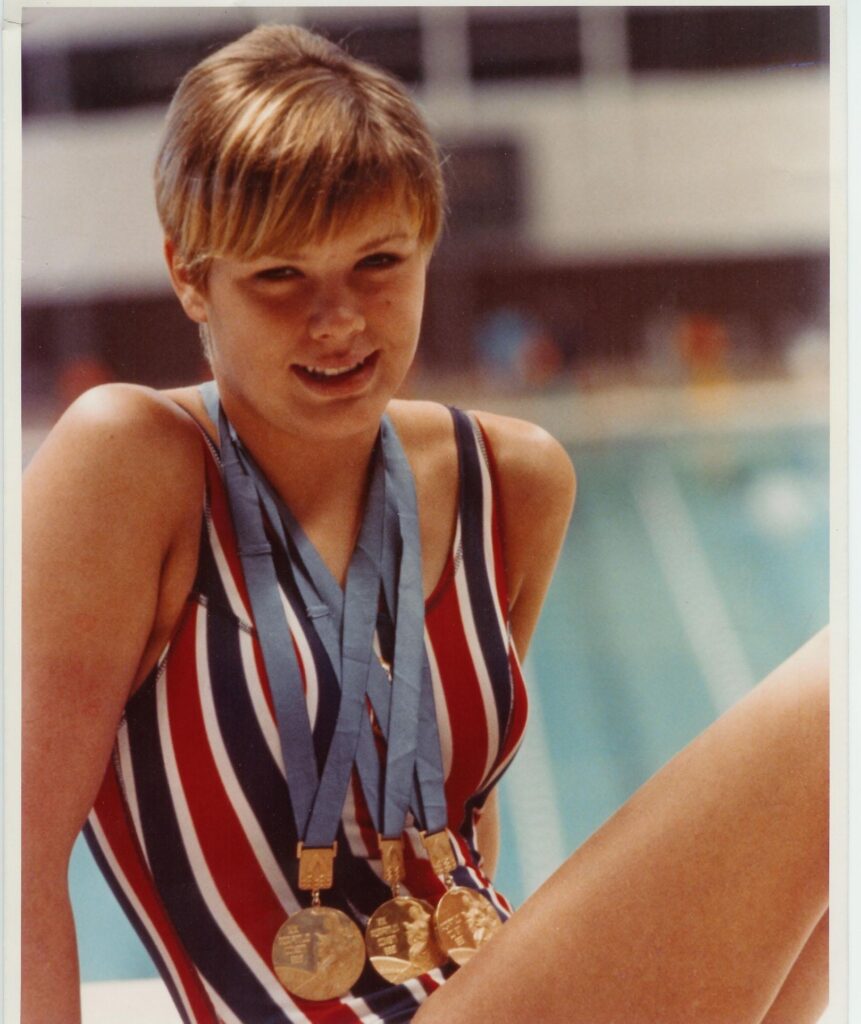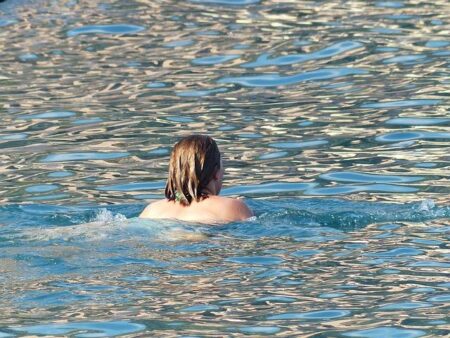At the 1968 Mexico City Olympic Games, American swimmer Debbie Meyer made history by redefining the boundaries of endurance and excellence in the pool. At just 16 years old, Meyer captured the world’s attention by becoming the first woman ever to win three individual gold medals in distance freestyle events at a single Olympic Games. Her groundbreaking performances not only secured her place in Olympic lore but also marked a turning point for women’s competitive swimming, inspiring a new generation of athletes worldwide. This article explores how Debbie Meyer’s record-breaking feats at the 1968 Games cemented her legacy as one of the greatest swimmers in history.
Debbie Meyer Shatters Records With Unprecedented Triple Gold Performance
Debbie Meyer’s performance in Mexico City was nothing short of revolutionary. As the first woman to clinch three individual gold medals in swimming at a single Olympic Games, she demonstrated unmatched endurance, technique, and determination. Meyer dominated the 200m, 400m, and 800m freestyle events, setting new Olympic records in each. Her victories not only positioned her as the swimming sensation of her era but also inspired a generation of female athletes to push the boundaries of competitive swimming.
Her groundbreaking achievements can be summarized in the table below, highlighting times that redefined women’s swimming standards at the time:
| Event | Gold Medal Time | Previous Olympic Record |
|---|---|---|
| 200m Freestyle | 2:10.5 | 2:12.0 |
| 400m Freestyle | 4:31.8 | 4:36.0 |
| 800m Freestyle | 9:24.0 | 9:31.5 |
More than just a medal haul, Meyer’s extraordinary feat came during a time of growing global recognition for women’s sports. Her blend of stamina and speed was unprecedented, featuring:
- Innovative training methods that emphasized both aerobic capacity and tactical pacing.
- Consistent performance across multiple distances, showcasing her flexibility and dominance.
- A trailblazing presence that helped elevate women’s swimming on the international stage.
The Training Regimen That Redefined Competitive Swimming Excellence
Debbie Meyer’s preparation for the 1968 Mexico City Games was nothing short of revolutionary, emphasizing intensity, versatility, and endurance in ways that had never been seen before in competitive swimming. Her rigorous daily routine balanced long-distance swims with targeted interval training, designed to optimize her cardiovascular capacity and stroke efficiency simultaneously. Central to her regimen was a unique blend of aerobic conditioning, which built her stamina, and anaerobic sprints that sharpened her speed and power in the pool.
Her coach implemented a meticulously planned schedule that integrated strength training and flexibility exercises, enhancing her muscular endurance and reducing injury risks. The regimen also incorporated deliberate recovery periods and attention to nutrition-an uncommon focus at the time-to ensure maximum performance on race day. Below is an outline of her typical weekly training structure that set new standards in athletic preparation:
- Monday to Friday: 6-8 hours of swimming, split between long freestyle sets and medley drills
- Strength Training: 3 sessions per week including resistance exercises and core work
- Flexibility Focus: Daily stretching routines and yoga sessions twice weekly
- Recovery: Scheduled rest days with light swimming or massages
| Training Component | Focus Area | Duration |
|---|---|---|
| Endurance Sets | Cardio & Stamina | 60-90 min/session |
| Sprint Intervals | Speed & Power | 30-45 min/session |
| Strength Training | Muscle Conditioning | 45 min/session |
| Flexibility | Recovery & Injury Prevention | 30 min/session |
Lessons From Meyers Legacy For Aspiring Athletes Today
Debbie Meyer’s groundbreaking success at the 1968 Mexico City Olympics serves as a powerful blueprint for today’s aspiring athletes. Her unwavering dedication to training and mental resilience under intense pressure highlights the importance of consistency and focus. Despite the challenges of competing at high altitude and in an era with fewer technological resources, Meyer’s ability to break three world records demonstrates that innovation and adaptability are key ingredients for success in any sporting discipline.
Current athletes can draw inspiration from how Meyer prioritized holistic preparation, blending physical endurance with a strong psychological mindset. Emphasizing discipline, strategic goal-setting, and embracing challenges as opportunities-qualities Meyer embodied-can transform the way modern competitors approach their craft. To encapsulate these lessons:
- Resilience: Push through setbacks, maintaining determination during adversity.
- Adaptability: Adjust techniques and strategies to evolving competition conditions.
- Consistency: Commit to daily practice, emphasizing gradual improvements.
- Mindset: Cultivate confidence and focus to perform under pressure.
| Debbie Meyer’s Traits | Modern Athlete Application |
|---|---|
| Innovative Training Methods | Incorporate technology & data analysis |
| Endurance & Strength | Balanced physical and mental conditioning |
| Calmness in Competition | Mindfulness and visualization techniques |
| Goal-Oriented Planning | Short-term milestones & long-term vision |
Concluding Remarks
Debbie Meyer’s groundbreaking achievements at the 1968 Mexico City Games not only earned her a place in Olympic history but also set new standards in competitive swimming. Her remarkable endurance and determination continue to inspire athletes around the world, underscoring the lasting legacy of her historic performance. As the world reflects on those memorable Games, Meyer’s name remains synonymous with excellence and pioneering spirit in the sport.




